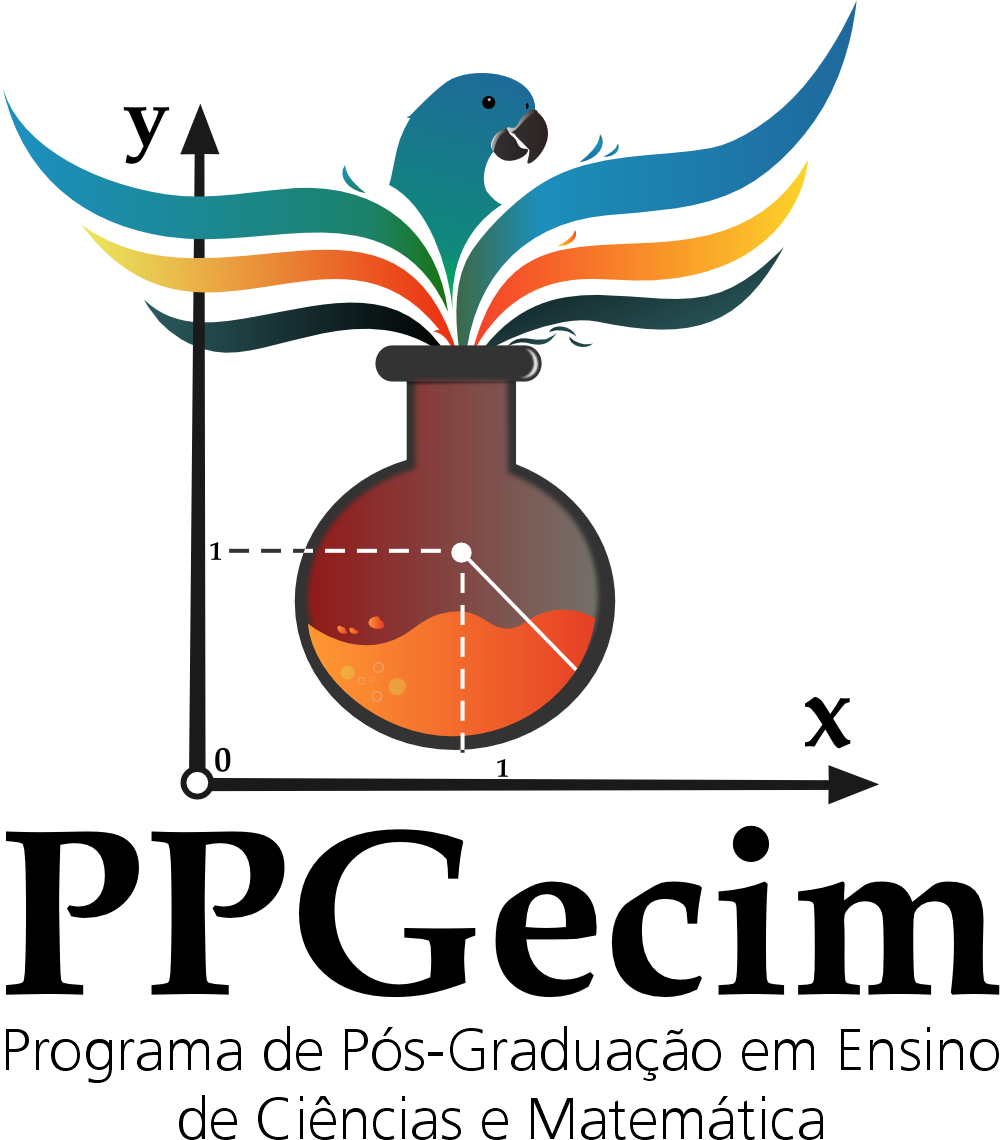The USE OF MEMES AND MIND MAPS AND THEIR CONTRIBUTION TO THE LEARNING OF BIOLOGY IN PANDEMIC TIMES
DOI:
https://doi.org/10.20873/riecim.v3i1.16761Keywords:
Biology teaching. Memes. mind map. Pedagogical Residence.Abstract
The pandemic has made it so that different technologies and teaching techniques are being introduced in education. This account has as its objective to recount an activity done for the Programa Residência Pedagógica (Biolog and Sciences department of Universidade Federal do Pampa - UNIPAMPA). The activity was executed with 2nd year High School students of a local school (São Gabriel/RS) and made use of memes and mind maps. The practice was based on the three pedagogical moments, utilizing the Google Meet platform. As a result, it was possible to obtain interesting indicators, of which the memes rendered a more meaningful learning and the mind maps characterized a potent tool for organizing the ideas and concepts learned in class.
References
AGUIAR, Felipe Rodrigues Magalhães de. Pandemia da covid-19 e demandas de atuação docente. Revista Diálogos Acadêmicos, v. 9, n. 1, 2020. ISSN 2448-1270. Disponível em: Pandemia da COVID-19 e demandas de atuação docente | Aguiar | Revista Diálogos Acadêmicos (fametro.com.br). Acesso em: 20/02/2021
ARNT, Ana de Medeiros; MATOS, Alan Henrique de Melo. Memes podem ser conteúdo? Analisando uma atividade de ensino na formação docente em Ciências Biológicas. Actas V Jornadas de Enseñanza e Investigación Educativa enel campo de lasCienciasExactas y Naturales. Facultad de Humanidades y Ciencias de la Educación: Universidad Nacional de La Plata, 2019. Disponível em: http://creativecommons.org/licenses/by-nc-nd/2.5/ar/. Acesso em: 20/02/2021
BUZAN, Tony; BUZAN, Barry. The Mind Map Book.2 ed., Plume, 1996.
CAVALCANTE, Bruna Luana de Lima; LIMA, Uirassú Tupinambá Silva de. Relato de experiência de uma estudante. J Nurs Health, v. 1, n. 2, p. 94-103, 2012. https://doi.org/10.47385/praxis.v12.n1sup.3513
DELIZOICOV, Demétrio; ANGOTTI, José André. Metodologia do Ensino de Ciências. 2 ed. São Paulo: Cortez, 1992.
DURÉ, Ravi Cajú; ANDRADE, Maria José Dias de; ABÍLIO, Francisco José Pegado. Ensino de Biologia e contextualização do conteúdo: quais temas o aluno de Ensino Médio relaciona com o seu conteúdo? Revista Experiências em Ensino de Ciências, V.13, No.1. 2018. Disponível em: https://www.semanticscholar.org/paper/ENSINO-DE-BIOLOGIA-E-CONTEXTUALIZA%C3%87%C3%83O-DO-CONTE%C3%9ADO%3A-Dur%C3%A9-Andrade/ee34012. Acesso em: 19/02/2021.
FABRÍCIO, Maria de Fátima Lima; JÓFILI, Zélia Maria Soares; SEMEN, Luiza Suely Martins; LEÃO, Ana Maria dos Anjos Carneiro. A compreensão das Leis de Mendel por alunos de Biologia na Educação Básica e na licenciatura. Revista Ensaio, Belo Horizonte, V. 8 nº 01, p. 83-103, 2006. ISSN 1983-2117. https://doi.org/10.1590/1983-21172006080106.
GALANTE, Carlos Eduardo da Silva. O uso de mapas conceituais e de mapas mentais como ferramentas pedagógicas no contexto educacional do Ensino Superior. Revista Eletrônica Múltiplo Saber, v. 23, p. 1-23, 2014. Disponível em: arq-idvol_28_1389979097.pdf (inesul.edu.br). Acesso em: 18/02/2021.
GÜLLICH, Roque Ismael da Costa. Investigação-formação-ação em ciências: um caminho para reconstruir a relação entre livro didático, o professor e o ensino. Curitiba: Prismas, 2013.Disponível em: https://www.researchgate.net/publication/336312657_Investigacao-Formacao-Acao_em_Ciencias_Um_Caminho_Para_Reconstruir_a_Relacao_Entre_Livro_Didatico_o_Professor_e_o_Ensino_Research-Formation-Action_in_Science_A_Way_to_Rebuild_the_elationship_Between_D. Acesso em: 18/02/2021.
KRASILCHIK, M. Prática de Ensino de Biologia. 4 ed. São Paulo: Editora da Universidade de São Paulo, 2008.
MARQUES, António Manuel de Miranda. Utilização pedagógica de mapas mentais e de mapas conceituais. Dissertação (Expressão Gráfica, Cor e Imagem) - Universidade Aberta. Lisboa, Portugal. P.153. 2008. Disponível em: http://educapes.capes.gov.br/handle/10400.2/1259. Acesso em: 17/02/2021.
SILVA, Bruna Rodrigues da; SILVA, Tiago Rodrigues da. Genética no ensino fundamental: representações didáticas na aprendizagem do mendelismo. Experiências em Ensino de Ciências, v. 15, n. 1, 2020. Disponível em: v15_n1_a2020.pdf (ufmt.br). Acesso em: 17/02/2021.
SILVA, Luciana Idalgo da et al. O uso do Facebook no contexto escolar: os gêneros meme e fotopoema para a produção textual em língua inglesa. 2016. Dissertação de Mestrado- Universidade Tecnológica Federal do Paraná, 2016. Disponível em: http://repositorio.utfpr.edu.br/jspui/handle/1/2278. Acesso em: 10/02/2021.
SNUSTAD, Peter; SIMMONS, Michael. Fundamentos da Genética. 6 ed. Rio de Janeiro: Guanabara Koogan, 2013.
SOTERO, Elaine; COUTINHO, Brenda. Memes, tecnologias e educação: ‘conversas’ com professoras em tempos de pandemia. Revista Docência e Cibercultura, v. 4, n. 2, 2020. https://doi.org/10.12957/redoc.2020.50564
VALENTE, Geilsa Soraia Cavalcanti; MORAES, Érica Brandão de; SANCHEZ, Maritza Consuelo Ortiz; SOUZA, Deise Ferreira de; PACHECO, Marina Caroline Marques Dias. O ensino remoto frente às exigências do contexto de pandemia: Reflexões sobre a prática docente. Research, Society and Development, v. 9, n. 9, 2020. DOI:10.33448/rsd-v9i9.8153
WUST, Naiára Berwaldt; MEGGIOLARO, Graciela Paz; GÜLLICH, Roque Ismael da Costa. Os diários e a reflexão dos professores: investigação, formação e ação em ciências. ReBECEM, Cascavel, (PR), v. 5, n.2, p.381-401, 2021. DOI:10.33238
Downloads
Published
How to Cite
Issue
Section
License
Copyright (c) 2023 Fabiele Rosa Pires, Dianifer Stefane Rocha Marques , Júlio Cesar Bresolin Marinho

This work is licensed under a Creative Commons Attribution-NonCommercial 4.0 International License.
Copyright Policy
Copyrights are retained by the authors, who grant RIEcim the exclusive rights for first publication. Authors will not be remunerated for the publication of their work in this journal. Authors are permitted to enter into separate, additional contractual arrangements for the non-exclusive distribution of the work's published version in this journal (e.g., post it to an institutional repository, on a personal website, publish a translation, or as a book chapter), with acknowledgement of authorship and initial publication in this journal. The Journal's editors have the right to make textual adjustments and adaptations to conform to publication standards.
Open Access Policy
This journal provides immediate open access to its content, following the principle that freely providing scientific knowledge to the public contributes to the global democratization of knowledge. Users can read, download, copy, distribute, print, search, or use the content for any legal purpose, respecting national copyright laws and without seeking prior permission from the publisher or the author. The opinions presented in the articles are the responsibility of the authors. The Journal does not charge Article Processing Charges (APCs).
Licensing Policy - Usage License
Licensed under the Creative Commons Attribution-NonCommercial 4.0 International (CC BY-NC 4.0) License. This license allows sharing, copying, redistributing the manuscripts published in RIEcim in any medium or format. Additionally, it allows adapting, remixing, transforming, and building upon the material, as long as proper credit is given to the author and initial publication in this journal is acknowledged.

































